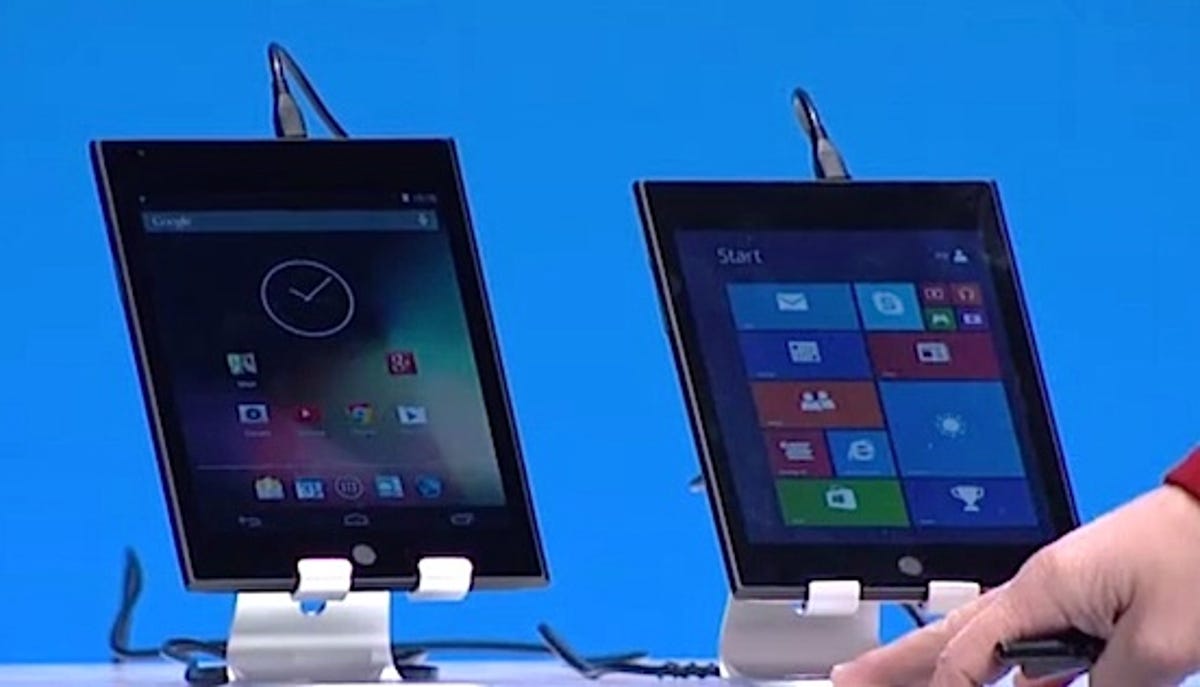
Intel
Hopes remain dim for Windows-Android hybrids. But, wait, there’s always cloning.
At a company conference in China this week, Intel showed two identical tablet designs aimed at device makers. The only difference? Software.
“It’s exactly the same hardware. It’s a Bay Trail [processor] running Android [or] the exact same hardware and bill of materials can run Windows,” Hermann Eul, general manager at Intel’s Mobile and Communications Group, said at the conference.
This comes after hopes for a new breed of hybrid Windows-Android products (including a 13-inch Asus tablet-laptop) were dashed — at least for now — due to resistance from Google and Microsoft.
Related stories
But the larger point that Intel was trying to make at the conference was price. So, in China — where many of the world’s largest device manufacturers are — a company could release identical low-cost tablets on both Android and Windows.
To date, that wasn’t feasible because an Android tablet would invariably beat a Windows tablet on price due to the latter’s licensing fee. But Microsoft fixed that problem this week, by offering Windows free for tablets and phones on devices smaller than 9 inches.
“We support Windows at all price points…in line with the Microsoft announcement bringing free Windows 8.1 to the market,” Eul said.
And he repeated Intel’s strategy to get tablets on the market for as low as $99. The new wrinkle is that this includes Windows products too.




